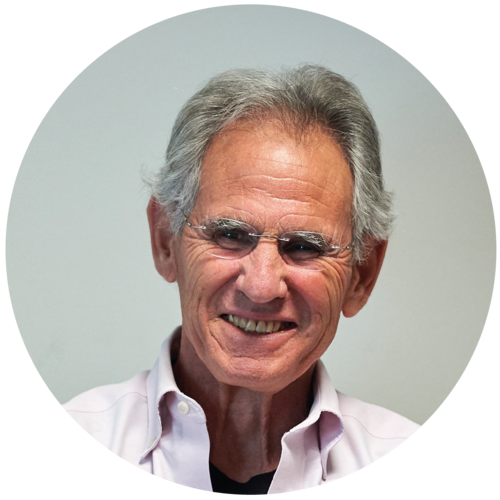Mindfulness-Based
The MBSR program provides a comprehensive approach to manage stress, improve emotional regulation, and enhance overall well-being by integrating mindfulness meditation and awareness practices into daily life.
Program Overview
MBSR is an evidence-based program that was developed by Dr. Jon Kabat-Zinn at the University of Massachusetts Medical Center in 1979. It is designed to help individuals manage stress, pain, and illness through the cultivation of mindfulness—an awareness that arises by paying attention, on purpose, in the present moment, and without judgment.

Dr. Jon Kabat-Zinn
Program Objectives
Develop the ability to recognize and accept your thoughts, emotions, and sensations without judgment.
Learn to focus attention on the present moment and let go of negative thoughts.
Develop the ability to take care of yourself physically and mentally.
Cultivate the ability to respond calmly and wisely to challenging situations.
Enhance self-compassion and empathy towards yourself and others.
What Does the Program Involve?
The MBSR program typically spans eight weeks, with weekly sessions lasting 2-2.5 hours, along with a full-day retreat. Each session includes guided mindfulness practices, gentle yoga, group discussions, and home assignments. The core practices taught include:

Mindfulness Meditation

Body Scan

Mindful Movement

Awareness of Daily Activities

Group Discussion
Program Benefits
Numerous studies have shown that MBSR can lead to significant improvements in mental and physical health. Participants often experience:
Reduced Stress and Anxiety
Mindfulness helps to break the cycle of stress by teaching you how to respond rather than react to stressors.
Enhanced Focus and Clarity
Regular mindfulness practice can improve concentration, decision-making, and overall cognitive function.
Increased Self-Awareness
Through mindfulness, individuals develop a deeper understanding of their thoughts, feelings, and behaviors, which supports personal growth and self-compassion.
Improved Emotional Regulation
MBSR fosters a greater understanding of emotions, allowing you to manage them more effectively.
Better Pain Management
MBSR has been shown to be effective in managing chronic pain by changing the way individuals relate to their pain.
Increased Well-Being
Overall, MBSR participants report feeling more connected, balanced, and at peace in their lives.
Who Can Benefit from MBSR?
MBSR is suitable for anyone looking to improve their quality of life, whether you’re dealing with chronic stress, physical pain, or simply the challenges of everyday living.
Program Structure
WEEK 0 – ORIENTATION
Introduction & Program Overview
Meeting between Participants and Instructors
Q&A
WEEKS 1 & 2
Mindful Movement
Mindful Eating
Body Scan Meditation
Perception Didactic
Awareness of Breathing
Pleasant Events Calendar
WEEKS 3 & 4
Walking Meditation
Lying Down Mindful Movement
Unpleasant Events Calendar
The Stress Response
Standing Mindful Movement
Group Exploration of Stress
WEEKS 5 & 6
Sitting and Standing Meditations
Working with Difficulties
Responding Instead of Reacting
Choiceless Awareness Meditation
Mindful Communications
Discussion of Full Day
Full Day Retreat
Day-long (7 hours) at home meditation retreat
WEEKS 7 & 8
Silent Meditations
Loving Kindness Meditation
Formal and Informal Practice
Sustaining Your Practice
Course End

